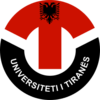1FUTURE project network was established in 2018, when the project idea was first conceived and partners were first approached for joining the consortium. Partners were selected purposefully based on the goals and expertise needed in the project. Most academic partners have experience in participating and managing CBHE project. Two newcomer institution to the CBHE action are part of the consortium (ULA and CEPS). Project partners were actively participating in successful joint activities and discussions in the past (K-force project, TRIANGLE Knowledge Alliance, other local projects).
The partnership was formed based on competences of each HEI and relevance to project objectives. Each of EU and Third Countries associated to EU HEIs have history, experience and engagement in climate and sustainability action. Careful analysis of the each organisation structure confirms the visible engagement of partners in climate and sustainability action (existence of climate and sustainability centers affiliated with each HEI, curricula development including climate, resilience and sustainability fields, innovation mechanisms established for business and academia partnerships). WBC HEIs have engaged in undertaking the project activities. Specific units, rather than institutions, have been carefully approached to be part of the project. NGO partners area of expertise is relevant to the project activities. All NGOs are engaged in project and programs in environment, resilience, climate and sustainability field. Business and professional association partners in the project are an essential bridge for connecting academia with business communities. One National Agency of the region focused in innovation and scientific research (NASRI) was approached as a partner to support all project activities and WBC partner in their path towards climate action, innovation, and sustainability.
The partnership acts under the multi-disciplinarity principle. Teams from each WBC HEI bring a different value added to the broader objective of the project. Achieving a holistic approach requires differentiated action in multidisciplinary units. Albania partners involve two faculties in the economy field (UTA and ULA) and one partner in technical field (UPT). Bosnia and Herzegovina partners involve again one partner of technical field (UTZ) and one partner in risk management, business management and resilience field (CEPS). The partner from Montenegro is the UoM, which is the biggest university in the country. Different team members within this HEI will collaborate in the project based on the multi-disciplinarity criteria that is established. The main unit is the Faculty of Civil Engineering at UoM.
Teams of each EU and Third Countriy associated with EU have been chosen so that they could guide and give support on different fields of study, with the ultimate aim to form a multidisciplinary consortium that would tackle all dimensions of climate and sustainability. Teams from Lund University and University of Novi Sad main area of expertise is climate change and disaster risk management. The main area of expertise of the team from IUAV, University of Venice is sustainable urban planning and land use management. The team from Ss. Cyril and Methodius University in Skopje is expert in the fields of sustainable use of resources and materials, energy efficiency and disaster risk management. The expertise from the team of Eberswalde University for Sustainable Development (HNEE) is sustainable tourism management, corporate social responsibility, climate change and sustainable business management. Together, EU countries will offer a solid assistance in different areas of climate change and sustainability, complementing each other and fulfilling broader goals of the project.
Diversity of project partners is another feature of the 1FUTURE Partnership. The consortium includes both HEI partners and Non-HEI partners (NGOS, Public Agencies and Business Associations). Non-HEI partners were chosen based on their area of expertise. NGO and public agencies partners have a significant innovation potential by providing advice, support and guidance to WPs, according to their specific expertise. NGOs have a long experience in the organization and functioning of their institutions. Business and Professionals Associations involved as partners will create the most significant links with the business sector. Therefore, their participation and role in the project is crucial. Given their large experience in involving stakeholders in joint activities, business associations will lead also dissemination activities. The National Agency for Science, Research and Innovation (NASRI) is a public entity in Albania which will assist all the project partners in capturing the innovative aspects of the project. Associated partners have been chosen based on their area of expertise, past collaboration with project partners, and their relationship with project results and target groups. Their role is primarily supportive, consultative and advisory. The associated partners involved in this project are Ministry of Education in Albania, and Lukavac Municipality in Bosnia and Herzegovina, and the Ministry of Ecology, Spatial Planning and Urbanism in Montenegro. Three different public entities are chosen as associated partners in order to capture different viewpoints from public stakeholders. They will be actively participating in dissemination activities, project events, and are expected to promote project outcomes within their institutions and beyond.
Views: 238



